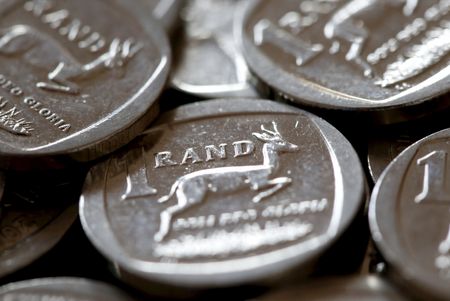By Erwin Seba
HOUSTON (Reuters) -Oil prices settled slightly higher after a wild trading session on Friday, popping up as media reports said U.S. air strikes on Venezuela could begin within hours and then retreating after U.S. President Donald Trump issued a denial on social media.
Brent crude futures settled at $65.07 a barrel, up 7 cents, or 0.11. U.S. West Texas Intermediate crude finished at $60.98 a barrel, up 41 cents, or 0.68%.
“Is this Donald Trump’s trick or treat?” said Phil Flynn, senior analyst for Price Futures Group. He noted that earlier this year, Trump denied reports of a planned attack on Iran before carrying out airstrikes against the Islamic Republic.
“There definitely was an impact on the market when the first report of a planned attack on Venezuela came out,” Flynn said. “If there is an attack over the weekend, prices will spike on Monday.”
The U.S. has deployed a task force centered around the nation’s largest aircraft carrier, Gerald Ford, off the coast of Venezuela, far beyond the needs of attacking drug traffickers on small boats, the focus of U.S. naval activity in the Caribbean in recent weeks.
“It’s pretty clear something is afoot there,” said John Kilduff, partner with Again Capital LLC. “For oil traders, it’s a classic situation of buy now and ask questions later.”
The U.S. dollar was near three-month highs against major currencies, making purchases of dollar-denominated commodities such as oil more expensive.
Meanwhile, sources told Reuters that Saudi Arabia, the world’s top oil exporter, may reduce its December crude price for Asian buyers to multi-month lows, sounding a bearish note.
Oil slipped after an official survey showed China’s factory activity shrank for a seventh month in October.
Brent and WTI are set to fall 2.6% and 2%, respectively, in October with the Organization of the Petroleum Exporting Countries and major non-OPEC producers ramping up output.
More supply will also cushion the impact of Western sanctions disrupting Russian oil exports to its top buyers China and India.
A Reuters survey forecast Brent will average $67.99 per barrel in 2025, about 38 cents above last month’s estimate. WTI is expected to average $64.83, slightly above September’s estimate of $64.39.
OPEC+ is leaning toward a modest output boost in December, people familiar with the talks said ahead of the group’s meeting on Sunday.
Kilduff said most of the OPEC+ members except for Saudi Arabia were unable to add much to their production.
“Pretty much there is nothing they can add that is going to be meaningful beyond what the Saudis can do,” Kilduff said.
In August, Saudi Arabia’s crude exports hit a six-month high of 6.407 million bpd, data from the Joint Organization Data Initiative showed.
A U.S. Energy Information Administration report also showed record production of 13.6 million bpd last week.
Trump said on Thursday that China has agreed to begin the process of purchasing U.S. energy and that a very large-scale transaction may take place involving the purchase of oil and gas from Alaska.
However, analysts remained skeptical as to whether the U.S.-China trade deal will boost Chinese demand for U.S. energy.
(Reporting by Erwin Seba in Houston and Shasia Nasralla in London; Additional reporting by Florence Tan; Editing by Susan Fenton, Tomasz Janowski and David Gregorio)










